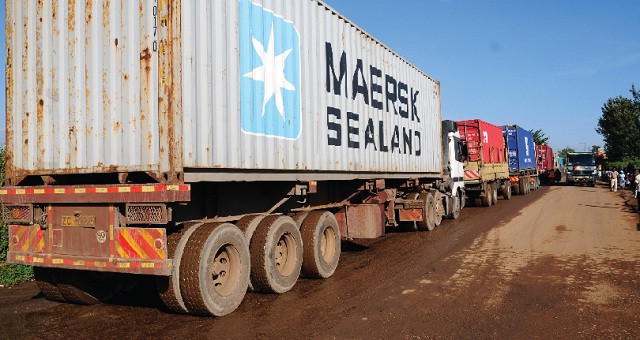
Kampala, Uganda | THE INDEPENDENT | Eastern and Northern Uganda are not reaping the benefits of being close to Uganda’s key export markets of Kenya and South Sudan despite being closer than any other region.
This is according to the recently released World Bank Uganda’s jobs strategy for Uganda 2020 report.
Instead, Central and Western Uganda have development production lines that are supplying goods to the Kenya and South Sudan markets creating descent jobs for their people.
This speaks the issue of inequality with Northern and Eastern regions lagging behind in transformation while Western and Central Uganda are prospering.
Dino Merotto, a World Bank Economist and Author of the latest World Bank report on Uganda said the country needs to think about regional priorities so as to help every part of the country benefit from the transformation.
Eastern and Northern regions are close to international markets including Kenya and South Sudan, currently, Uganda’s most important food export markets.
However, regional gaps in job opportunities have increased over time with the two lagging behind.
Uganda exports fresh fruits, milk, meat and many other agricultural products to Kenya and South Sudan.
Commercial firms able to produce such have developed in the West and Central region.
The report notes that growth from subsistence to commercial farming has been concentrated in the central and western regions: Fort Portal, Kasese, and Mbarara are areas with potential for commercial farming and agro-processing to create jobs.
With the exception of Jinja, the report says, commercial farming and food processing companies remained underdeveloped in Eastern and Northern regions. There were many food processors in the eastern region, but these were not able to scale up to take up markets in Kenya and South Sudan.
People in paid (wage) employment increased between 2002 and 2014, but much more in the Kampala, western, and central regions than in the eastern and northern regions. This means that a lot more people in eastern and northern Uganda remain in informal, subsistence and less paying jobs.
There is also more formalization in jobs in Kampala and western Uganda, meaning their quality are better. Also in Agriculture, the report says, business opportunities are concentrated around the richer towns, especially Greater Kampala.
“Small, market-oriented farmers and processors are concentrated in the northern and eastern regions,” the report says. “Less than one in four are found in the northern region. They are also much less likely to live in the central region,” the report says.
******
URN
 The Independent Uganda: You get the Truth we Pay the Price
The Independent Uganda: You get the Truth we Pay the Price


